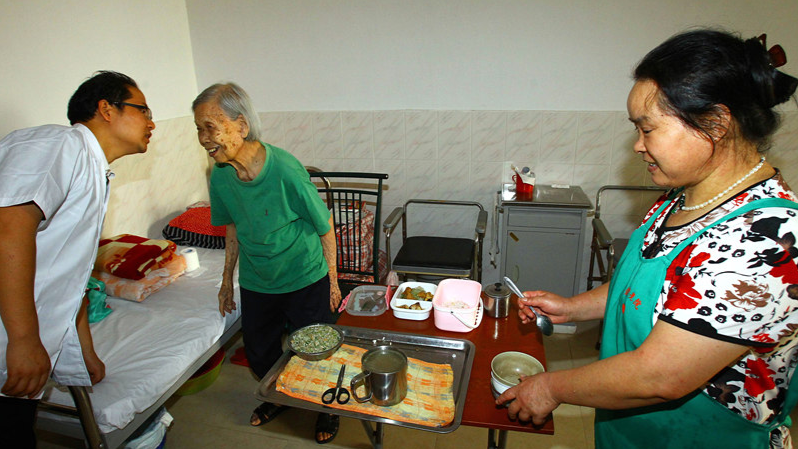
Two elderly care homes in Foshan and Shenzhen started receiving Hong Kong senior people on Monday who are awaiting government-subsidized nursing places.
The move, which doubles the number of Chinese mainland nursing homes under the Residential Care Services Scheme in Guangdong to four, provides more options for Hong Kong people who face a long time on the Central Waiting List for subsidized care and attention places.
For instance, elderly people with chronic diseases are worried about whether after moving to mainland cities they can continue to buy and use medicines and equipment they used in Hong Kong
Over 500,000 Hong Kong residents were living in Guangdong province as of 2022, according to government data. Among them, 88,000 were aged 65 or above, accounting for 17.43 percent. To address those people’s care needs, the Hong Kong Special Administrative Region government launched the cross-boundary elderly care program in 2014, and regularized the program in 2020.
READ MORE: Mainland health experts visit residential care homes in HK
Only two care homes were previously included under the program, the Hong Kong Jockey Club Shenzhen Society for Rehabilitation Yee Hong Heights operated by the Hong Kong Society for Rehabilitation, and the Hong Kong Jockey Club Helping Hand Zhaoqing Home for the Elderly run by Helping Hand.
The newly added care home in Foshan is operated by Hong Kong E T Investment Ltd with 326 bed places, and the Shenzhen facility, operated by Jane’s Home Ltd, has 250 bed places.
Lan, a representative from E T Investment, said many elderly people have called in to ask about the program over the past few days, most of whom learned about it through TV and newspapers.
She said they were mainly concerned about two issues: whether conditions in mainland elderly care facilities meet Hong Kong standards, and what kind of medical treatment is available in the mainland cities of the Greater Bay Area.
For instance, elderly people with chronic diseases are worried about whether after moving to mainland cities they can continue to buy and use medicines and equipment they used in Hong Kong, Lan said.
She said that her company will communicate with the care home in Foshan to cater to the specific medical needs of the elderly. The company will also arrange visits to Foshan and tours of the home for elderly people who show an interest in the service, Lan added.
The Hong Kong government will also launch a pilot cross-boundary ambulance service with Shenzhen soon, providing transportation from HKU-SZ hospital to Hong Kong for emergency patients
Terry Lum Yat-sang, a professor in social work and social administration at the University of Hong Kong, said medical issues are the most important factors deterring Hong Kong people from retiring in the Greater Bay Area.
Lum said that although the Hong Kong government can cover the fees at mainland care homes, old people still need to pay for medical expenses occurred during their stay, which is a heavy burden.
He said there are differences in the equipment and drugs used by the medical systems of the two places.
Lam believes it is necessary to strengthen exchanges between the medical systems of Hong Kong and other GBA cities, to eventually agree on a standard and interactive medical system, which will also help improve overall medical levels in the country.
Currently, Hong Kong seniors living on the mainland are allowed to use their elderly health care vouchers in seven designated medical institutions across Shenzhen, Guangzhou, Zhongshan and Dongguan, and enjoy government-subsidized medical consultations at the University of Hong Kong – Shenzhen Hospital.
READ MORE: Young lodgers bring joy to elderly nursing home residents' lives
The Hong Kong government will also launch a pilot cross-boundary ambulance service with Shenzhen soon, providing transportation from HKU-SZ hospital to Hong Kong for emergency patients.
The measures that allow designated healthcare institutions operating in the Guangdong-Hong Kong-Macao GBA to use such drugs and medical devices for urgent clinical use, are subject to the approval of Guangdong province.
As of Jan 16, 28 drugs and 28 medical devices registered in Hong Kong are permitted to be used in the 19 designated healthcare institutions across the Greater Bay Area, under facilitation measures.
Contact the writer at fangxue@chinadailyhk.com


